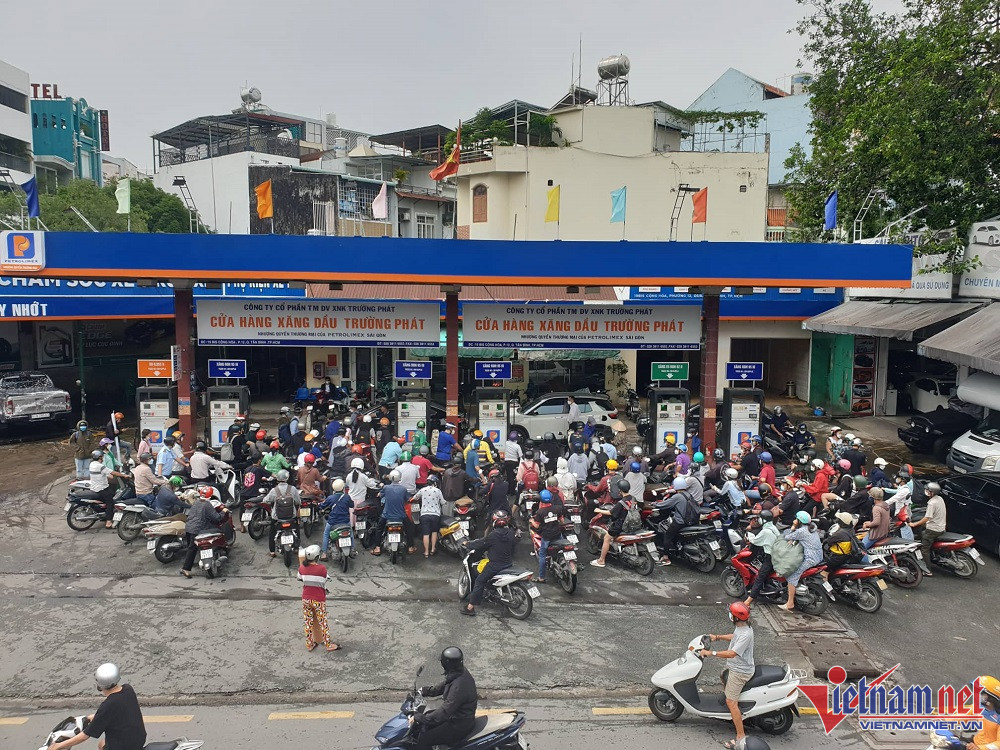
2022 was the first year Vietnam began regulating gasoline prices under a new scheme. The prices are now reviewed every 10 days instead of 15 days.
The first gasoline review of 2022 coincided with the 2022 Lunar New Year, so the price adjustment, which should have been made on February 1, was delayed until the next review, on February 11.
Prior to that, there were signs of fuel supply interruptions. This, plus the delay of the price adjustment, worsened the situation. After raising the ceiling price on February 11, the supply still could return to normal.
The fuel shortage at that time was partially attributed to a shortage from Nghi Son Oil Refinery. The refinery had to cut the capacity of some units, which lowered output to the market.
The fuel supply remained unstable. A shortage still occurred at times, especially in southern provinces. The images of filling stations with signs saying they had run out of petrol and of people queuing up for hours to buy gas appeared in many newspapers.
The same situation was later seen in Hanoi and northern provinces as well.
Prime Minister Pham Minh Chinh at the government’s regular meeting on October 29 requested the Ministry of Industry and Trade (MOIT) to amend Decree 95 on petrol trading under the principle that there will be only one management agency.
The fuel shortage was caused by Vietnamese businesses deciding not to import fuel for domestic sales because the more they imported, the bigger losses they incurred.
Filling stations complained that they had to take a loss when selling gasoline. Some stations decided to close their doors as they could not bear the losses.
The fuel shortage improved in late 2022, but the risk of a shortage still exists.
Minister of Finance Ho Duc Phoc said his ministry would ask to amend Decree 95 and assign petroleum trading to MOIT for management.
On November 12, MOIT sent a document to ministries, branches and cities/provinces, asking for opinions about amendments related to petroleum trading, including the price adjustment cycle, discount rate, rights and obligations of businesspeople distributing fuel, state management, the use of the petrol price stabilization fund, and punishment of violators.
MOIT suggested that businesspeople regularly report operation costs to the Ministry of Finance (MOF).
Duy Anh